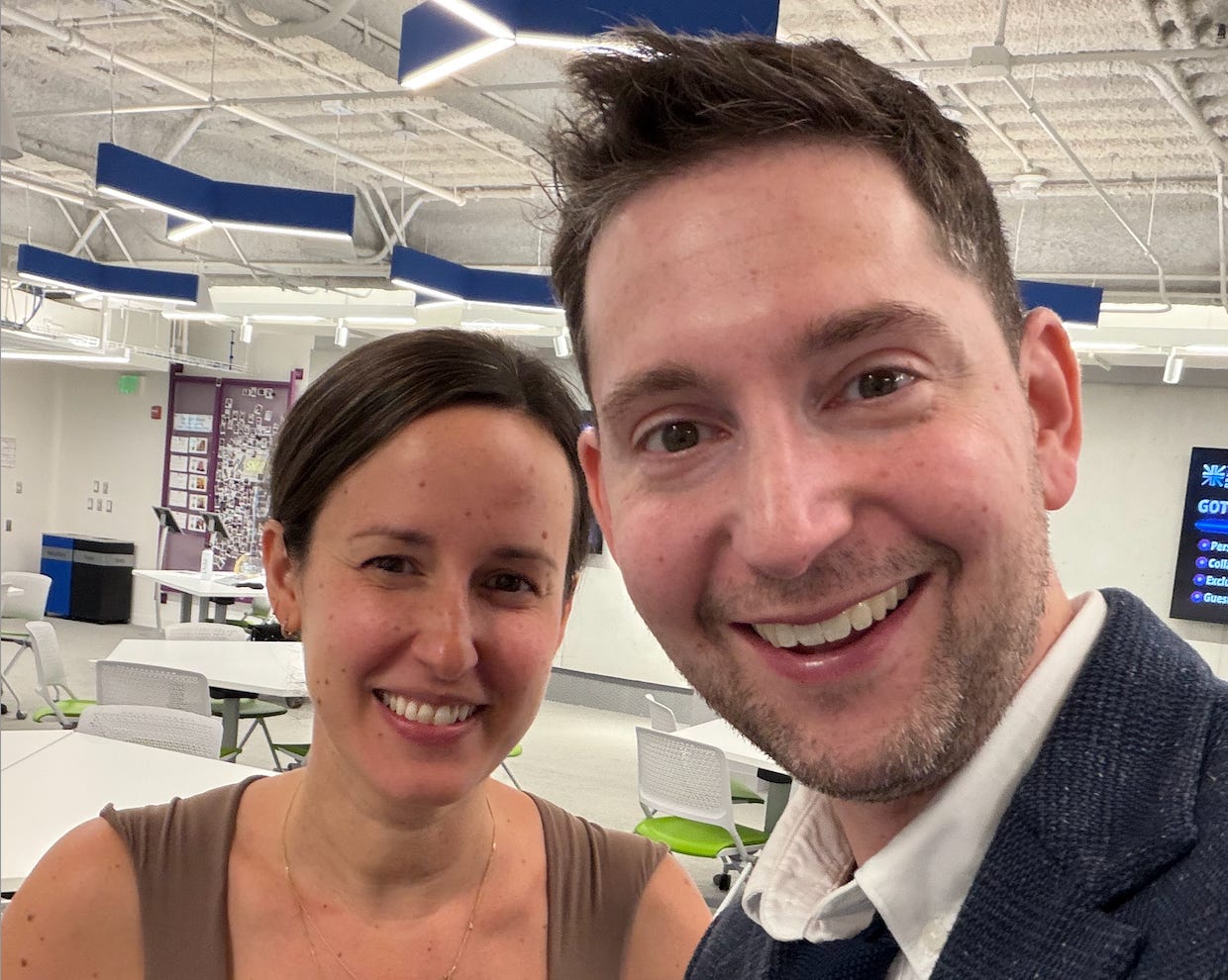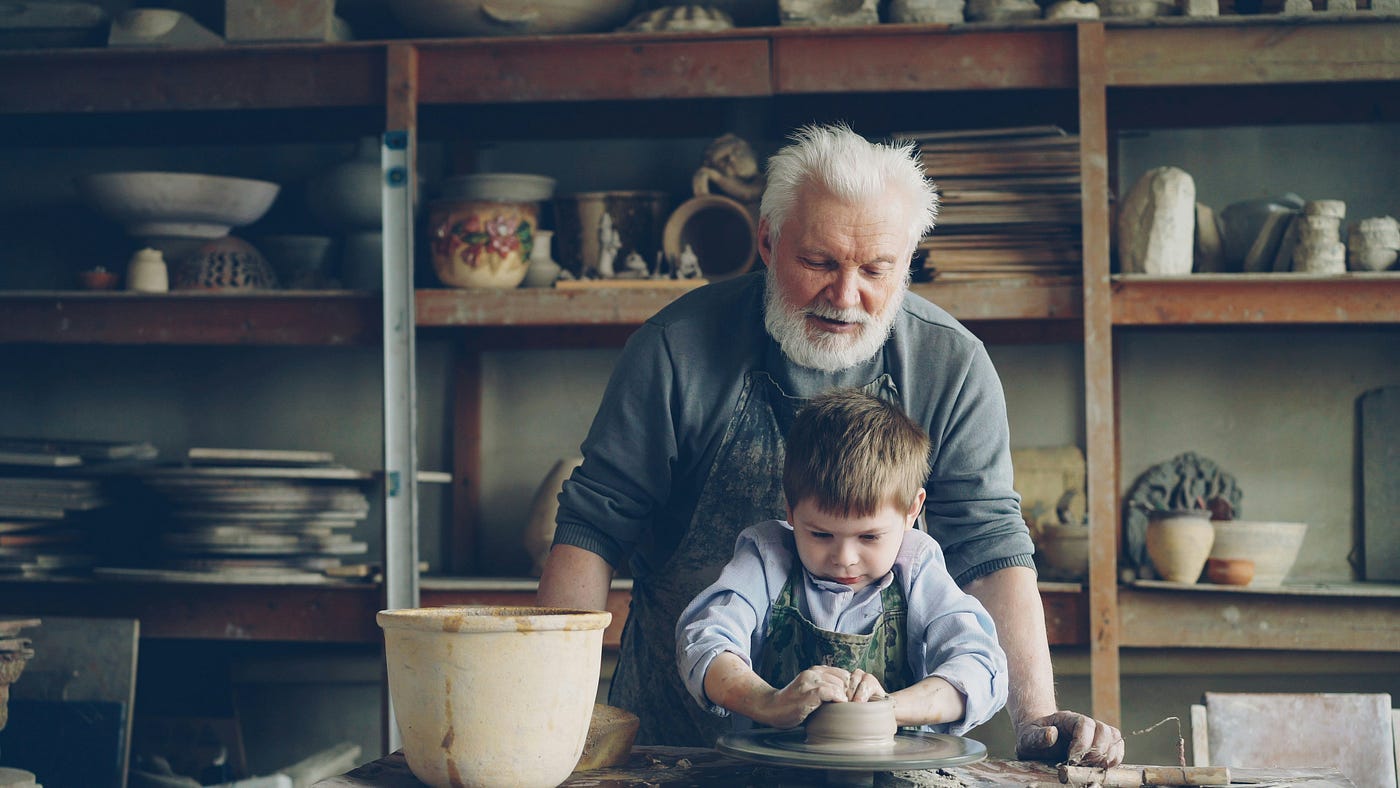Building Trust in an AI-Powered World
Entrepreneur Office Hours - Issue #304

A few weeks ago, I mentioned I’d start bringing some of my Duke colleagues into Entrepreneur Office Hours — partly because entrepreneurship is far too big for any one person’s perspective, partly because I’m lucky to work alongside people who constantly expand my own thinking, and partly because including them here is an opportunity to hopefully help you expand yours.
Consider this the first small step in that direction…
I’ve been asking my colleagues to share one short lesson they think every entrepreneur should know, and then we’re going to explore their advice.
First up is Amy Wyron Robinson, who teaches courses on customer discovery, creativity in entrepreneurship, and narrative design. She also helps run Duke’s Melissa & Doug Entrepreneurship Program, which is where our rockstar founders come together. In other words, Amy works with some of Duke’s best entrepreneur’s, and I’m thrilled she’s taking some time to share her insights with us, too.
That begins with the “short lesson” I’d asked from all my colleagues. Here’s what she wrote:
“When every founder has access to the same data and tools, the only edge left is the story you tell and how deeply it moves people to believe and act. AI can generate amazing outputs, but only human beings can generate trust. My courses focus on equipping innovators and entrepreneurs to not just explain what they’re building – but to make others feel why it matters and drive the impact they want to see in the world.”
That line — “only human beings can generate trust” — caught my attention. It feels like articulated something about AI-generated content I’ve been trying to put my finger on but have struggled to explain.
Sure, AI is brilliant at replication. It can mimic tone, structure, argument, even personality. And we all know it can produce more content, faster, and often cleaner than most humans ever could. But what it still can’t do — what it may never do — is make us believe. (By the way, yes, those are em dashes. And, yes, I wrote them. 😁)
Amy is reminding us that belief doesn’t come from polish. It comes from presence.
When Amy says the only real edge left is the story you tell and how deeply it moves people to believe and act, she’s pointing to what’s fast becoming the heart of modern entrepreneurship. Thanks to all the powerful tools and technologies we all have access to, anyone can launch a brand, post a video, or spin up a website that looks professional. In that entrepreneurial landscape, what separates the forgettable from the remarkable is whether the people behind the work can make us trust them.
Simply put, building trust isn’t work you can outsource or automate.
Trust comes from the small human details — the ones too nuanced for algorithms to reproduce and critical for creating connection and building credibility. Over time, credibility becomes trust. And trust, once earned, becomes the most defensible competitive advantage a founder can have.
So if you’re a founder thinking about how to stand out in a world flooded with noise — or worried about competing with AI that can outproduce you — don’t. You already have the one edge it never will.
— Aaron
This week’s new articles…
The Lie Every Founder Believes About “Working Smarter”
Entrepreneurs need to be efficient in order to succeed, but efficiency isn’t created in the way most founders think.
The Loneliest Moment in Entrepreneurship
Being a founder is filled with difficult moments, but the most difficult moment will definitely surprise you.
Editor’s note: I realize I didn’t publish EOH last week, so here are the extra articles I wasn’t able to share…
Warning: These Types of Deals Will Kill Your Startup
Not every customer is going to be a customer that makes your business more successful.
When Experience Becomes the Most Dangerous Thing in Entrepreneurship
Experience is usually a founder’s superpower, but it can also be the thing that kills your startup.






Thanks, Aaron. Great points! I always remind younger entrepreneurs I meet two things:
1) The famous saying by Dorothy Parker: “Curiosity is the cure for boredom; there is no cure for curiosity.”
2) And that no matter how many startups they have launched, the best entrepreneurs have an open mind and always learn; the mediocre ones only learn from their experiences; and the worst entrepreneurs never learn, they already have all the answers…